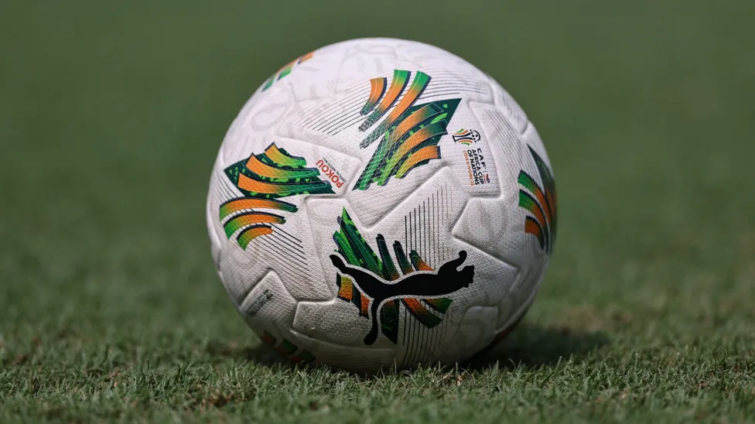Uganda’s football federation (Fufa) has banned 13 individuals, including 10 referees, after successfully uncovering a South African-based match-fixing syndicate with the help of Fifa.
A player and two administrators are among those who were handed provisional 90-day bans by Fufa on 13 June.
Seven games across the second divisions of both men’s and women’s football in the East African country were adjudged to have been targeted by the fixing ring between October and December last year.
“We received a lot of information from intelligence, collaborators and different platforms that there was a vice of match-fixing in Uganda,” Charles Twine, a member of Fufa’s investigatory chamber, said on Tuesday.
Calling the problem “so damaging”, Twine said Fufa, which launched an anti-match-fixing campaign in March 2023, has “incontrovertible” evidence against the Ugandans involved in the fixing ring.
“I can comfortably call it a criminal syndicate because match-fixing is associated with so many crimes – crimes of corruption, money laundering and, sometimes, organised crime,” he added.
Such groups often target matches outside a country’s top flight given the lack of television cameras, which could expose any fixing, in the lower tiers.
Match-fixing became a criminal offence last year in Uganda, which is scheduled to co-host the 2027 Africa Cup of Nations alongside Kenya and Tanzania.
In a separate development last week, world governing body Fifa issued global five-year bans to five players, including three from top-flight side Gaddafi FC, and 10-year suspensions to two referees from Uganda.
The seven individuals had been suspended by Fufa in August 2023, the same month that Ugandan President Yoweri Museveni signed the National Sports Act, which criminalised match-fixing, into law.

Betting 'abnormal' money
Fufa’s legal manager Denis Lukambi, speaking alongside Twine, said that systems put in place with Fifa and sports data company Sportradar enabled Fufa to detect the fixing.
“We received an alert that someone has placed abnormal money on a particular game,” said Lukambi.
“99% of this process is about betting – with match-fixers or mafias placing money either in local [Ugandan] betting houses or, more specially, out of the country.”
In a statement last week,, external Fufa said that the match-fixing syndicate was led by “Hilfiger Mutyaba, alias Chelsea, and other local criminal elements", one of whom the federation is still looking for.
Mutyaba was described by Fufa as “an ex-convict who was charged, convicted and sentenced in the Virgin Islands for financial-related crimes”.
Fufa said Mutyaba and his accomplices recruited referee Kaddu Ali, who was tasked with approaching players, club officials and match officials on behalf of the match-fixers.
“We broke into the syndicate penetrating our game, and some of these guys were from South Africa,” Twine said.
“We identified a guy called Mutyaba. He put a lot of money as bait and came here, penetrating a few Ugandans who he deliberately recruited as agents. These agents then went ahead and penetrated a section of stakeholders.
“Referees, club officials and, unfortunately, even our players have been compromised and matches have been fixed,” added Twine.
Investigations started in December, with 80% of those involved reportedly confessing while also exposing, perhaps unwittingly, some of those who denied any wrongdoing.
While Fufa said some players were “used”, which may lead to reduced bans, the federation believes others placed their own money on games which they knew were fixed.
Right to appeal
This is not the first match-fixing scandal to have affected football in Uganda, a country which featured at back-to-back Africa Cup of Nations in 2017 and 2019 after nearly four decades without qualifying for the finals.
The country suffered a major scandal in 2003 when current champions SC Villa won 22-1 in a title-deciding game, while a 2015 cup final between Villa and KCC FC is notorious in Uganda for being abandoned after a controversial penalty.
The 13 banned individuals have 90 days to present their defence, prior to Fufa’s ethics committee determining the length of their suspensions if finding them guilty.
A right of appeal to Fufa will be possible and, if that fails, a final resort to overturn any conviction can be taken to sport’s highest legal body, the Switzerland-based Court of Arbitration for Sport.
Individuals found guilty could also face criminal charges, given last year’s ruling.
“We call upon all Ugandans that match-fixing must be fought collectively, irrespective of your role – whether you’re in the media, a sports fan, a sports administrator and players,” said Twine.
“We shall continue unwaveringly to ensure that this vice is completely eradicated.”
Latest Stories
-
Speaker orders investigation into market fire outbreaks
2 seconds -
Mahama-led administration abandoned the Legon Sports Stadium – Mustapha Ussif
3 minutes -
Mental health experts call for increased awareness, education as gaming addiction spikes
5 minutes -
Only 80 psychiatrists serving Ghana’s 35 million population – Mental Health Authority
6 minutes -
Mahama promotes new Defence and Service Chiefs
27 minutes -
Adum fire was not caused by power outage – ECG dispels claim
36 minutes -
Adum Fire: Affected traders asked to await approval from Manhyia and government before rebuilding
41 minutes -
Adum fire victims to receive GHs600k immediate support
51 minutes -
‘Konnected Minds’ tops Apple Podcast Charts
1 hour -
Mahama’s proposed Upper East Airport: An economic burden or a necessity?
1 hour -
Madagascar vs. Ghana: A potential banana peel in the World Cup qualifiers
1 hour -
If I were starting music today, I would put more effort in my branding – Mzbel
1 hour -
Movie producers of our time preferred light-skinned actors – Beverly Afaglo
1 hour -
PRESEC ’96 hosts Bright Simons and Julius Richardson to reimagine education
2 hours -
Jay Q appreciates Randy Abbey for supporting his music career
2 hours

